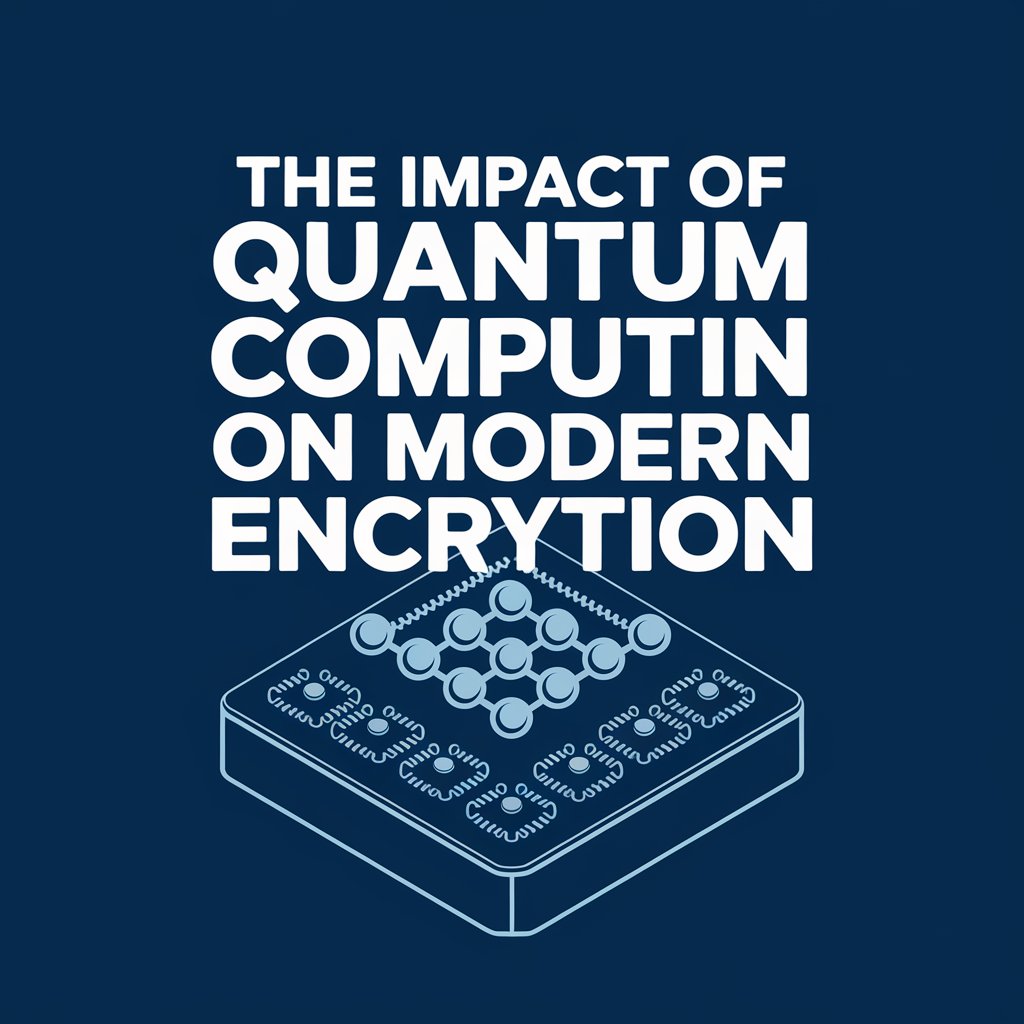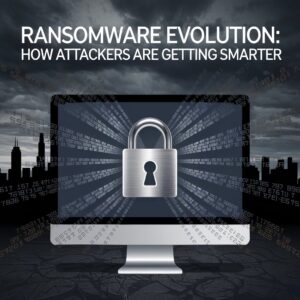
In a world where data is the new oil, encryption serves as the bedrock of digital security. From personal messages to financial transactions, encryption ensures that our data remains private and secure. However, a new player is entering the field—quantum computing. This emerging technology promises to revolutionize computing power but also threatens to unravel the very encryption systems that keep our information safe. As quantum computing edges closer to reality, understanding its impact on modern encryption is crucial.
Understanding Modern Encryption
Encryption is the process of converting data into a code to prevent unauthorized access. It’s the reason why, when you send an email or make an online purchase, your information isn’t easily intercepted by malicious actors. Modern encryption methods, such as RSA (Rivest–Shamir–Adleman) and AES (Advanced Encryption Standard), rely on mathematical problems that are incredibly difficult for classical computers to solve. These encryption methods are the foundation of digital security, protecting everything from online banking to government communications.
What is Quantum Computing?
Quantum computing is a new paradigm that leverages the principles of quantum mechanics to perform computations at unprecedented speeds. Unlike classical computers that use bits (0s and 1s), quantum computers use quantum bits, or qubits, which can exist in multiple states simultaneously thanks to superposition. Additionally, quantum entanglement allows qubits to be interconnected, enabling quantum computers to solve complex problems exponentially faster than classical computers.
How Quantum Computing Threatens Current Encryption
While quantum computing holds immense promise for various industries, it poses a significant threat to current encryption standards. One of the most concerning developments is Shor’s algorithm, which quantum computers could use to break RSA encryption by efficiently factoring large prime numbers. Similarly, Grover’s algorithm could reduce the security of symmetric encryption methods like AES by effectively halving the key size. This means that encryption methods that are currently deemed secure could be rendered obsolete once quantum computers reach sufficient power—a scenario that experts believe could happen within the next decade.
The Concept of Quantum-Safe Encryption
To counter the threat posed by quantum computing, researchers are developing quantum-safe encryption methods. Quantum-safe encryption, also known as post-quantum cryptography, involves creating cryptographic algorithms that are resistant to the power of quantum computers. These algorithms are designed to be secure against both classical and quantum attacks, ensuring the continued protection of digital information even in the quantum era. The National Institute of Standards and Technology (NIST) is currently working to standardize quantum-safe encryption algorithms, a crucial step in preparing for the quantum future.
Post-Quantum Cryptography
Post-quantum cryptography is an emerging field focused on developing encryption methods that can withstand quantum attacks. There are several promising approaches in this field:
- Lattice-Based Cryptography: This method relies on the hardness of lattice problems, which remain difficult even for quantum computers.
- Code-Based Cryptography: Based on error-correcting codes, this approach has been studied for decades and is considered quantum-resistant.
- Hash-Based Cryptography: This technique uses hash functions to create secure digital signatures that are resilient to quantum attacks.
These post-quantum cryptographic algorithms are designed to replace or complement existing encryption methods, providing a layer of protection in the quantum era.
Quantum Key Distribution (QKD)
Another promising approach to securing data in a quantum world is Quantum Key Distribution (QKD). QKD uses the principles of quantum mechanics to securely distribute encryption keys between parties. Because any attempt to eavesdrop on the key distribution process would disturb the quantum state and alert the parties involved, QKD offers a level of security that is theoretically unbreakable. While QKD is still in its early stages of deployment, it represents a significant leap forward in securing communications in the quantum era.
The Role of Governments and Organizations
Governments and organizations worldwide are beginning to recognize the importance of preparing for the quantum future. Various government initiatives aim to develop and implement quantum-safe encryption standards. For instance, the U.S. government has launched programs to fund research into quantum computing and its implications for national security. Tech companies, too, are investing heavily in quantum-safe cryptography, recognizing that the transition to quantum-resistant systems is not just a future concern but an immediate priority. International cooperation is also key, as the global nature of data and communication networks means that quantum-safe standards must be adopted universally to be effective.
Current Challenges in Quantum-Safe Cryptography
Despite the promising developments in quantum-safe cryptography, several challenges remain. Implementing new cryptographic standards across industries is no small feat, requiring significant resources and coordination. The cost of transitioning to quantum-safe systems can be prohibitive, particularly for smaller organizations. Additionally, there is the challenge of maintaining backward compatibility with existing systems while introducing quantum-resistant algorithms. Ensuring a smooth transition without compromising security is a complex task that will require ongoing effort and innovation.
The Future of Encryption in the Quantum Era
As we look to the future, it’s clear that the advent of quantum computing will necessitate a fundamental shift in how we approach encryption. Experts predict that within the next decade, quantum-safe encryption will become the standard, as businesses and governments alike seek to protect their data from the looming quantum threat. For businesses, the key to surviving and thriving in the quantum era will be proactive planning. This includes evaluating current encryption practices, staying informed about developments in quantum computing, and gradually adopting quantum-safe encryption methods. The race between encryption and decryption is far from over, and in the quantum era, it will only intensify.
Real-World Examples of Quantum Computing’s Impact
Several companies and organizations are already taking steps to prepare for the quantum future. For example, Google and IBM are investing in quantum computing research, exploring both its potential benefits and the security challenges it poses. Meanwhile, companies like IBM are also developing quantum-safe encryption algorithms and integrating them into their products. Early adopters of quantum-safe encryption, such as financial institutions, are leading the way in securing sensitive data against future quantum threats. These real-world examples highlight the urgency and importance of addressing the impact of quantum computing on encryption today.
Conclusion
The rise of quantum computing marks a new chapter in the ongoing battle between encryption and decryption. While the potential of quantum computing is vast, it also threatens the security of our digital world. As we stand on the brink of the quantum era, it’s essential to take proactive measures to safeguard our data. Quantum-safe encryption, post-quantum cryptography, and Quantum Key Distribution represent the next frontier in protecting our information. By staying ahead of the curve and embracing these technologies, we can ensure that our digital world remains secure in the face of quantum challenges.
FAQs
What is quantum computing in simple terms?
Quantum computing is a new type of computing that uses the principles of quantum mechanics to process information much faster than classical computers.
How soon will quantum computers break modern encryption?
Experts estimate that quantum computers capable of breaking modern encryption could become a reality within the next decade.
What can businesses do now to prepare for quantum computing?
Businesses should start evaluating their current encryption practices, stay informed about developments in quantum computing, and begin exploring quantum-safe encryption options.
Is quantum-safe encryption available today?
Yes, researchers have already developed quantum-safe encryption methods, and some are in the process of being standardized.
How does Quantum Key Distribution (QKD) work?
QKD uses the principles of quantum mechanics to securely distribute encryption keys. Any attempt to eavesdrop on the process would be detected, making QKD highly secure.






